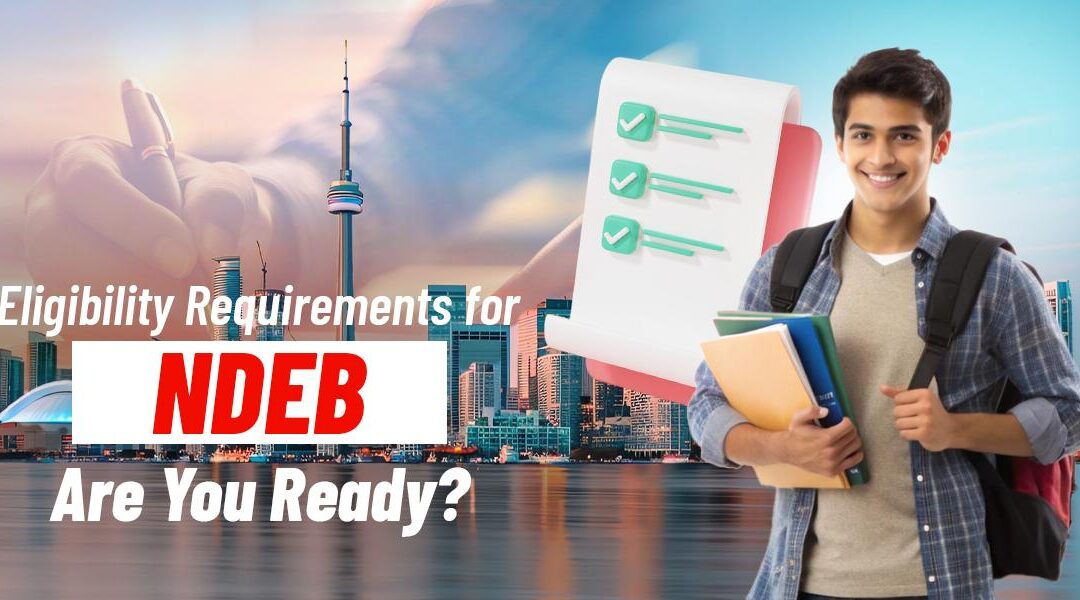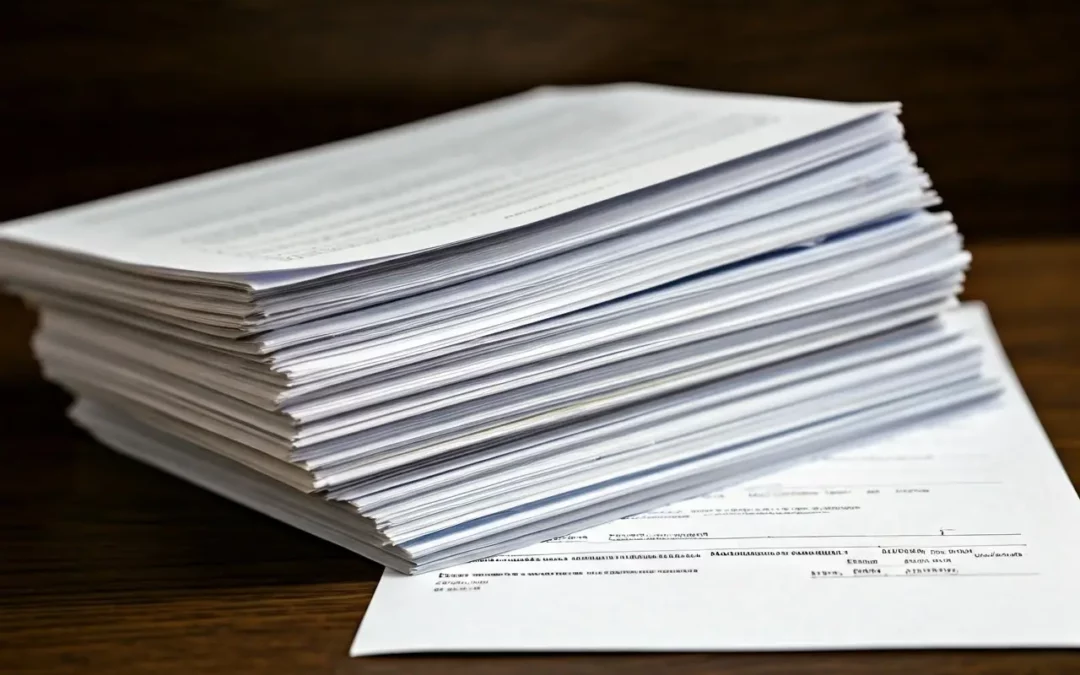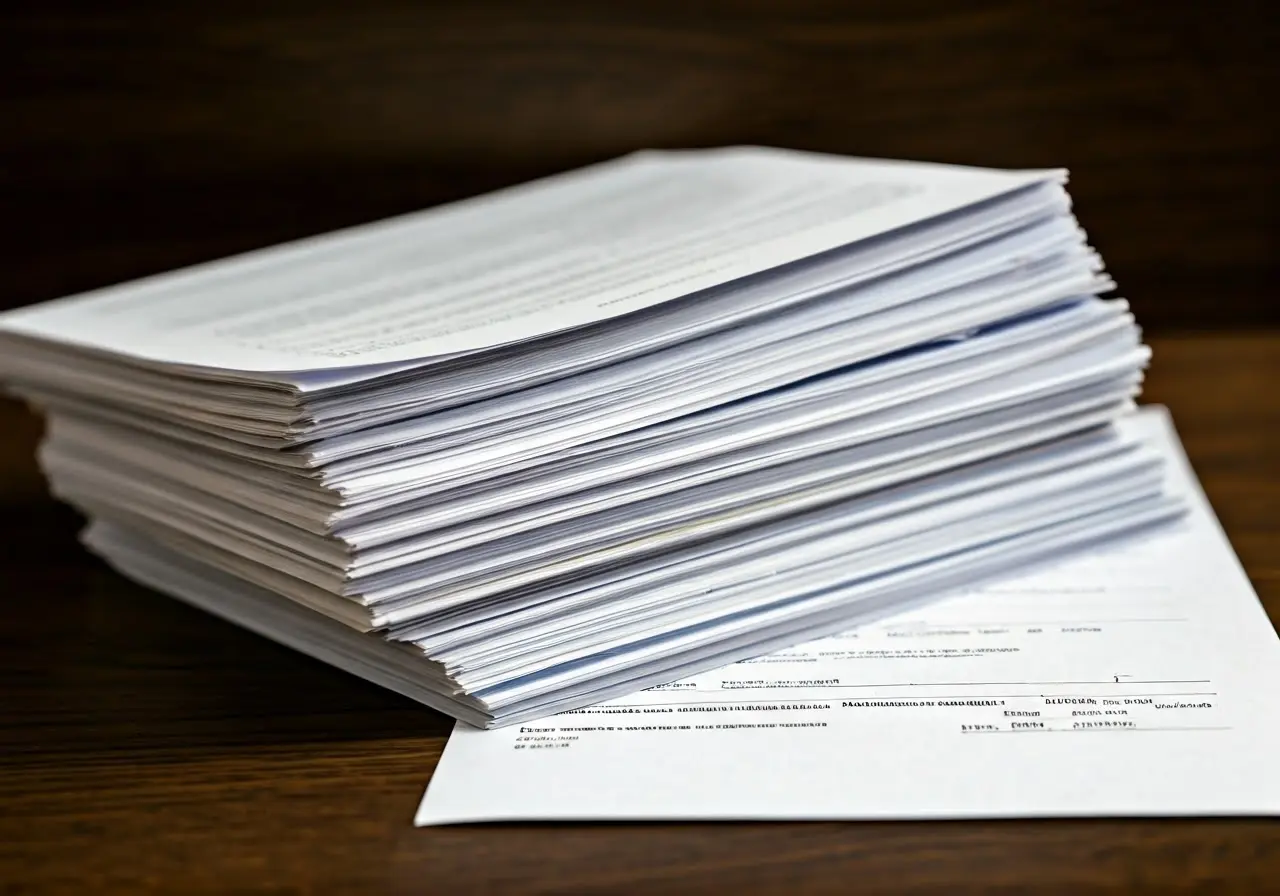
by World Document Services | Oct 8, 2024 | Most Viewed, Transcripts Services

7 Mistakes to Avoid in Your Transcript Certificate Process
Navigating the transcript certificate process can be tricky, especially if it’s your first time. Whether you’re a student or a professional seeking further education, it’s important to avoid common pitfalls that can delay or jeopardize the approval of your transcript. In this blog, we’ll walk you through the most frequent mistakes and how you can steer clear of them for a smoother experience.
Need help with your Transcript Certification Process? Contact Us Now!
1. Not Checking Requirements in Advance
Before you start the transcript certificate process, it’s essential to know what is required. Whether it’s the specific documents, application forms, or deadlines, make sure you understand what you need ahead of time to avoid any last-minute surprises.
Different institutions may have varying requirements, and overlooking a single detail could complicate the entire process. Spend some time researching or even contacting the institution to get a clear list of what you need. This preparatory step can make a significant difference in how smoothly everything goes.
Another aspect often overlooked is the format in which documents should be submitted. Some institutions prefer digital copies while others might require hard copies. Knowing these specifics in advance saves you from unnecessary back-and-forth communication and ensures that you comply with all guidelines from the get-go.
Read more: Can I Get My University Certificate Verified Online?
2. Ignoring Deadlines
Deadlines are crucial when dealing with transcript certificates. Missing a deadline can result in delays or even disqualification, so always be aware of the timeline and set reminders to keep everything on track.
Often, the importance of deadlines goes beyond just submission dates. Sometimes, there are deadlines for requesting letters of recommendation, acquiring supporting documents, or even mailing hard copies. Having a comprehensive timeline can help you juggle these multiple deadlines without missing any crucial steps.
Technology can be your best friend in managing these deadlines. Utilize digital tools like calendars, reminder apps, or task management software to keep everything in check. By automating reminders, you can ensure that you meet all your deadlines without having to constantly check dates manually.
Providing incomplete or incorrect information on your application can cause significant delays. Double-check all the details, from your personal information to your academic records, to ensure everything is accurate and complete.
An often neglected part of the application is the contact information. Ensure that your email addresses and phone numbers are correct and regularly monitored, as any communication regarding discrepancies will be sent to these points of contact. You definitely wouldn’t want to miss important updates just because your contact info was outdated.
It’s also crucial to keep your format consistent. Make sure that names and dates align with the official documents to avoid any mix-up or confusion. Even minor discrepancies like middle initials or shorter versions of your name can create issues. Consistency in this area is key.
4. Not Keeping Copies
It’s always a good idea to keep copies of all submitted documents for your records. This can be extremely helpful if there are any issues or discrepancies later on, and you need to provide proof of what was initially submitted.
In the digital age, keeping both physical and electronic copies of important documents is advisable. Scan all hard copies and store them securely in cloud storage. Not only does this provide a backup, but it also makes it easier to find and share documents when needed.
5. Forgetting to Pay Fees
Most transcript certificate processes require some form of payment. Forgetting to pay the required fees can halt the entire process. Always check if there are any fees, how much they are, and ensure they are paid on time.
Double-check the payment guidelines provided by the institution. Sometimes, fees need to be paid through a specific portal or bank. Missing these details can delay your application, even if you complete all other steps correctly. Staying vigilant in this area can save you from unnecessary headaches.
Keep in mind that some fees might be non-refundable. If your application gets delayed or rejected due to non-payment, you might incur additional costs. Always ensure you have a record of the payment receipts; taking screenshots or securing confirmation emails can serve as good evidence in case any disputes arise.
6. Not Following Up
After submitting your application, don’t just sit back and wait. Follow up with the relevant department to ensure your application is being processed. This will help you catch any issues early and rectify them promptly.
Consistent follow-ups can sometimes be the difference between a timely approval and an extended wait. Regular checks through emails or phone calls not only show your dedication but also keep your application on the institution’s radar. Avoid being too passive; a proactive approach can pay off tremendously.
Don’t hesitate to ask for a timeline or expected processing dates when you follow up. This additional information can provide peace of mind and help you plan for subsequent steps. Institutions often appreciate organized and informed applicants.
Read more: The Essential Guide to University Certificate Verification for Overseas Education
7. Failing to Provide Necessary Authentication
Some transcripts may require additional authentication, such as notarization or apostille stamps, especially if they’re being used internationally. Make sure you understand these requirements and complete them to avoid delays.
Authentication processes can be intricate, involving several steps and sometimes needing third-party interventions. Start this step early to ensure you have ample time to gather all necessary stamps and approvals. Rushing through this part can lead to costly errors, so take your time to get it right.
Make sure to confirm the specific type of authentication needed for your transcripts. Some institutions might accept a notarized copy, while others require an apostille. Knowing the exact requirements can save both time and money, helping you avoid unnecessary repeat submissions.

by World Document Services | Sep 26, 2024 | Most Viewed, NDEB

As an aspiring dentist looking to build your career in Canada, understanding the eligibility requirements for the National Dental Examination Board (NDEB) is the crucial first step. At World Document Services, we know that the path to Canadian dental licensure can seem complex, but with the right guidance, you can navigate it with confidence. This blog will break down the NDEB eligibility criteria, helping you determine if you’re ready to begin your journey to practicing dentistry in Canada.
Need help with your NDEB Exam Preparation? Contact Us Now!
Why Canada is the Ultimate Destination for Indian Dentists
Canada is renowned for its world-class healthcare system, high quality of life, and a growing demand for skilled professionals. For Indian dentists, Canada offers a unique opportunity to expand your practice in a multicultural environment, earn a competitive salary, and enjoy a rewarding career. However, before you can take that leap, you must meet the NDEB’s stringent eligibility requirements.
Read more: Unlocking Your Canadian Dental Dreams: Introduction to NDEB for Indian Dentists
What is the NDEB?
The National Dental Examination Board (NDEB) of Canada is the body that certifies dentists who wish to practice in Canada. The NDEB ensures that all practicing dentists meet the required standards of education and clinical competence.
Are You Eligible? NDEB Eligibility Criteria for Indian Dentists
To begin the process of becoming a licensed dentist in Canada, you must first confirm your eligibility to take the NDEB exams. Here’s a breakdown of the key eligibility requirements:
1. Dental Degree from a Recognized Institution
The first and foremost requirement is that you must hold a dental degree from an institution recognized by the NDEB. This typically means that your dental school should be accredited or recognized by the national dental regulatory authority in your country.
- Tip: Ensure that your dental college or university is listed among those recognized by the NDEB. You can check this on the NDEB’s official website or contact World Document Services for assistance.
2. Completion of an Accredited Dental Program
Your dental education must meet specific educational criteria, including the completion of both didactic (theoretical) and clinical training. The program should include:
- Basic medical and dental sciences.
- Preclinical and clinical dentistry.
- General practice and specialty areas.
3. Language Proficiency
As Canada is a bilingual country with English and French as its official languages, proficiency in one of these languages is essential. You may be required to provide proof of language proficiency, such as scores from the IELTS, TOEFL, or CELPIP tests.
- Tip: If you completed your dental education in English or French, this may suffice as proof of language proficiency.
4. Document Verification
All your educational and professional documents must be verified by the NDEB. This includes your degree certificates, transcripts, and any other relevant documents. Document verification is a critical step and must be done meticulously.
- World Document Services Role: At World Document Services, we specialize in verifying and authenticating your documents according to NDEB standards. We ensure that your documents are complete, accurate, and ready for submission.
5. ECA (Educational Credential Assessment)
For those applying through the Express Entry system for immigration, an Educational Credential Assessment (ECA) may be required. The ECA compares your educational qualifications with Canadian standards.
- World Document Services Role: We can guide you through the ECA process, ensuring your documents are evaluated correctly.
Challenges and Common Pitfalls
Understanding the eligibility criteria is just the first step. Many candidates face challenges during the verification and application process, such as incomplete documentation, errors in applications, and delays due to unverified documents.
Common Pitfalls:
- Submitting incomplete or incorrectly filled forms.
- Missing deadlines for document submission.
- Not preparing adequately for language proficiency tests.
How WDS Can Help: We at World Document Services provide end-to-end support, from document verification to guiding you through the entire NDEB application process, helping you avoid these common pitfalls.
Why Meeting NDEB Eligibility is Crucial
Meeting the NDEB eligibility requirements is critical because it:
- Ensures that your education and training are up to Canadian standards.
- Allows you to sit for the NDEB exams, which are necessary to practice in Canada.
- Opens doors to better career opportunities in Canada’s healthcare system.
Read more: What is the importance of CRS for Canada PR?
Frequently Asked Questions (FAQs)
1. What if my dental degree is not recognized by the NDEB?
If your degree is not recognized, you may need to complete additional coursework or training to meet NDEB standards. Contact us at World Document Services for personalized guidance.
2. How long does it take to verify my documents?
Document verification can take several weeks to a few months, depending on your university and the NDEB’s processing time. Starting early and ensuring all documents are correct is key to avoiding delays.
3. Do I need to be fluent in both English and French?
No, you only need to be proficient in one of the official languages. However, being bilingual may provide additional advantages in your professional career in Canada.
4. Can World Document Services help with the entire application process?
Yes, we offer comprehensive support throughout the NDEB process, including document verification, application assistance, and exam preparation.
5. What happens if I don’t meet the eligibility criteria?
If you don’t meet the eligibility criteria, we can help you explore alternative pathways or additional training that may be required to meet NDEB standards.
Conclusion
Meeting the NDEB eligibility requirements is a crucial first step in your journey to practicing dentistry in Canada. By understanding and preparing for these requirements, you can set yourself up for success. At World Document Services, we’re here to support you at every stage, ensuring your application is accurate, complete, and submitted on time. Let us help you turn your Canadian dream into reality.
Download the World Document Services App
For a seamless experience, download our mobile app to start your NDEB journey today:

by World Document Services | Sep 25, 2024 | Most Viewed, Transcripts Services

Applying for MUHS transcripts can be a daunting task, especially if you’re not familiar with the process. However, by being aware of common mistakes, you can ensure a smooth and successful application. In this blog, we’ll walk you through the top mistakes to avoid, so you can get your MUHS transcripts without any hassle.
Need help with your MUHS Transcript? Contact Us Now!
1. Not Gathering All Required Documents
One of the most common mistakes is not having all the necessary documents ready before starting your application. Make sure to gather all required materials, such as identification, proof of enrollment, and any other pertinent documents. This can save you a lot of time and hassle later.
When you fail to collect these documents in advance, you might find yourself scrambling at the last minute to get everything together. This can lead to missing deadlines and unnecessary stress. Always check the specific document requirements for MUHS transcripts, as they may vary depending on your situation.
It’s also a good idea to make copies of everything. Having both physical and digital copies of your documents can help you quickly resolve any issues that may arise. This way, you’ll be prepared for any contingencies that might come up during the application process.
Read more: How MUHS Online Simplifies the ECA Filing Process: 9 Important Facts
2. Missing the Application Deadline
Deadlines are crucial, and missing them can delay your application significantly. Mark all important dates in your calendar and set reminders to ensure you submit your application on time. It’s easy to overlook deadlines when you’re juggling multiple responsibilities, but planning ahead can make a world of difference.
Procrastination is another enemy of meeting deadlines. Start your application process well in advance of the due date. This gives you plenty of time to gather documents, fill out forms accurately, and address any unforeseen issues. Plus, submitting early can often give you a buffer period to make any last-minute corrections if needed.
Additionally, consider setting a personal deadline a few days before the actual one. This ensures you have a safety net in case of any unexpected obstacles, like technical difficulties or other unforeseen circumstances. Better safe than sorry!
Accuracy is key when filling out your application form. Double-check all the information you provide to avoid any errors that could lead to your application being rejected. Mistakes can range from simple typos to more significant errors that can complicate your application process.
One of the best practices is to fill out a draft version first. This allows you to review your answers without the pressure of submitting it immediately. Once you’re confident all information is correct, transfer it carefully to the final form. This extra step can help you catch mistakes that you might otherwise overlook.
Consider having a friend or family member review your application. A fresh set of eyes can often spot errors that you may have missed. This peer review can be invaluable in ensuring that your application is as accurate as possible before submission.
4. Not Paying the Required Fees
Some applications require a fee. Failing to pay this fee can halt the processing of your application. Ensure you know the exact amount and the preferred payment method. Ignoring this step can result in delays or even denial of your transcript request.
Be sure to keep a record of your payment. Whether it’s a receipt or a confirmation number, having proof can be useful if there are any issues with your payment being processed. This documentation can help resolve disputes quickly and efficiently.
If you’re unsure about how to pay the fee, don’t hesitate to contact the MUHS administration for clarification. They can provide detailed instructions on acceptable payment methods and amounts, reducing the risk of any mishaps.
Always include up-to-date contact information. This ensures that the administration can reach you if there are any issues with your application or if additional information is needed. Neglecting this step can lead to delays or even a voided application.
Make sure your contact information includes a reliable email address and phone number. These are the most commonly used channels for communication, and having them up-to-date can expedite any back-and-forth necessary to complete your application.
Double-check your contact information for accuracy before submitting. Even a small typo can make it difficult for the administration to reach you, which can cause delays or misunderstandings. Thoroughness in this step can save you a lot of hassle down the line.
6. Not Checking Application Status Regularly
After submitting your application, it’s important to regularly check the status. This way, you can address any issues promptly and ensure that your application is moving forward. Many institutions provide an online portal for this purpose, making it easy to stay updated.
Set reminders to check the status every week or so. This habit can help you catch any problems early, such as missing documents or additional information requests. Staying proactive is the key to a smooth and efficient application process.
If you notice any issues or have concerns about your application’s status, don’t hesitate to reach out to MUHS administration. Timely communication can help resolve any problems quickly, ensuring that your application stays on track.
Read more: What are Academic Transcripts & How You Can Get It?
7. Ignoring Help Resources
Many institutions offer resources and support for applicants. Don’t hesitate to reach out for help if you’re unsure about any part of the process. Utilizing these resources can make the application process much smoother.
Whether it’s an FAQ section, a guidance counselor, or a specific helpline, these resources are there to assist you. They can provide valuable insights and tips that you might not have considered, helping you avoid common pitfalls.
Remember, seeking help doesn’t imply weakness; it shows you’re committed to getting it right. The smoother your application process, the quicker you’ll receive your MUHS transcripts. Use every tool at your disposal to ensure success.
Why Choose World Document Services for Your Transcript Needs?
Dealing with the complexities of getting, translating, and submitting a transcript of records can be daunting. World Document Services is the solution for that. We are dedicated to offering extensive assistance for all of your academic document requirements. Here are the reasons why you should select our services:
- Expert Guidance
- Efficient Solutions for Saving Time
- Global Reach
- Personalized Assistance

by World Document Services | Sep 24, 2024 | Most Viewed, NDEB

As a dental professional in India, you’ve likely dreamed of expanding your career horizons, and there’s no better destination than Canada. Renowned for its high standard of healthcare and diverse population, Canada offers incredible opportunities for dentists. However, to practice dentistry in Canada, you’ll need to pass through the rigorous certification process administered by the National Dental Examination Board (NDEB).
Need help with your NDEB Certificate? Contact Us Now!
At World Document Services, we’re dedicated to helping you navigate this journey smoothly. This blog will introduce you to the NDEB process and outline how Indian dentists can achieve their Canadian dreams.
Why Canada?
Canada is consistently ranked among the top countries in the world for quality of life. It’s also home to a growing, aging population that demands high-quality dental care. For Indian dentists, Canada presents a unique opportunity to practice in a multicultural environment, earn a competitive salary, and enjoy a high standard of living. However, entering the Canadian dental profession requires passing the NDEB exams, a process that we at World Document Services specialize in guiding you through.
What is NDEB?
The National Dental Examination Board (NDEB) of Canada is the body responsible for certifying dentists who wish to practice in Canada. The NDEB ensures that all practicing dentists meet the standards of education and clinical competence required to provide quality dental care in Canada.
The pathway for internationally trained dentists, including those from India, involves a series of examinations that test both theoretical knowledge and clinical skills.
Read more: Easy Guide to Pharmacy Licensure in Canada
The NDEB Certification Process
The NDEB certification process for Indian dentists typically involves the following steps:
1. Eligibility Assessment:
Before you can take the NDEB exams, you must first determine your eligibility. This involves submitting your dental credentials to the NDEB for verification. At this stage, all your documents must be authenticated and validated, a process that World Document Services can manage efficiently for you.
2. Equivalency Process:
Indian dentists must undergo an equivalency process to prove that their education and skills are on par with Canadian standards. This includes three exams:
- Assessment of Fundamental Knowledge (AFK): A written exam testing your understanding of basic dental sciences.
- Assessment of Clinical Judgment (ACJ): This exam assesses your ability to make appropriate clinical decisions.
- Assessment of Clinical Skills (ACS): A hands-on practical exam where you’ll be required to demonstrate your clinical skills.
3. Passing the NDEB Written and OSCE Exams:
After successfully passing the equivalency exams, you’ll need to take the NDEB Written Examination and the Objective Structured Clinical Examination (OSCE). These final exams are the last hurdle before you can apply for a dental license in Canada.
4. Licensure:
Once you’ve passed all the exams, you can apply for licensure in the province where you wish to practice. Each province in Canada has its own regulatory body that issues licenses.
Why is NDEB Certification Important?
Canada takes the quality of its healthcare professionals seriously, and dentistry is no exception. The NDEB certification ensures that all practicing dentists in Canada have the knowledge and skills necessary to provide safe and effective care. For Indian dentists, achieving NDEB certification not only opens doors to practicing in Canada but also enhances their professional credentials globally.
Challenges Indian Dentists May Face
While the prospect of practicing in Canada is exciting, the NDEB process is challenging. The exams are rigorous, and the standards are high. Common challenges include:
- High Costs: The entire process can be expensive, with fees for exams, application processing, and additional costs for travel and accommodation.
- Time-Consuming: The process can take several months to years, depending on how quickly you can pass the exams.
- Cultural and Clinical Differences: The Canadian dental system may differ from what you’re accustomed to in India, both in terms of clinical practices and patient expectations.
How World Document Services Can Help
At World Document Services, we understand the complexities involved in the NDEB certification process. We are the exclusive partner of the National Dental Examination Board in India, which means we have direct access to the information and resources you need to succeed.
- Document Verification: We ensure that all your academic and professional documents are verified and authenticated according to NDEB standards.
- Application Assistance: We guide you through the entire application process, ensuring that your submissions are accurate and complete.
- Preparation Support: Through our partnerships, we can connect you with resources that help you prepare for the NDEB exams.
- Ongoing Guidance: From the moment you start your journey to the day you receive your license, we’re here to provide the support you need.
Read more: What is the importance of CRS for Canada PR?
Frequently Asked Questions (FAQs)
1. What is the NDEB, and why is it important for Indian dentists?
The National Dental Examination Board (NDEB) is the governing body responsible for certifying dentists in Canada. For Indian dentists, NDEB certification is crucial as it validates their qualifications and ensures they meet Canadian standards, allowing them to practice dentistry in Canada.
2. What are the eligibility criteria for the NDEB certification?
To be eligible for NDEB certification, Indian dentists must have a dental degree recognized by the NDEB, complete the equivalency process, and pass all required examinations, including the AFK, ACJ, and ACS. Additionally, proficiency in English or French is mandatory.
3. How long does the NDEB certification process take?
The duration of the NDEB certification process varies based on individual circumstances. On average, it can take anywhere from 6 months to 2 years to complete all the required steps, including document verification, examinations, and licensure application.
4. What costs are involved in the NDEB certification process?
The NDEB certification process involves several costs, including application fees, exam fees, document verification fees, and potential travel and accommodation expenses for in-person exams. World Document Services can help you understand and plan for these expenses effectively.
5. Can World Document Services assist with the entire NDEB process?
Absolutely! As the exclusive partner of the NDEB in India, World Document Services offers comprehensive support throughout your NDEB journey. From document verification to application assistance and exam preparation, we are here to ensure a smooth and efficient process for you.
6. What support does WDS provide after passing the NDEB exams?
After successfully passing the NDEB exams, World Document Services assists you with the licensure process, job search strategies, and settlement services in Canada. Our goal is to support you at every stage of your transition to practicing dentistry in Canada.
7. Is there any financial aid or scholarships available for the NDEB process?
While World Document Services does not directly provide scholarships, we can guide you to various financial aid options and resources to help manage the costs associated with the NDEB certification process.
Conclusion
The path to becoming a licensed dentist in Canada is challenging but rewarding. With the right preparation and support, you can achieve your goal of practicing dentistry in one of the world’s most desirable countries. At World Document Services, we are committed to helping Indian dentists like you navigate the NDEB process successfully. Your Canadian dream is within reach—let us help you make it a reality.
Download the World Document Services App
For a seamless experience, download our mobile app to start your NDEB journey today:

by World Document Services | Sep 22, 2024 | Educational Documents, Most Viewed

Learn 10 Things About Migration And Convocation Certificates: What If The Role of MOI?
Migration and convocation certificates can be confusing, but they are essential documents for students and professionals moving across institutions or stepping into the workforce. In this blog, we’ll uncover ten important things about these certificates and shed light on the role of the Medium of Instruction (MOI).
Need help with your Migration and Convocation Certificate? Contact Us Now!
1. Understanding Migration Certificates
Migration certificates are issued by educational institutions when a student wishes to transfer from one institution to another. They contain critical information that facilitates the transfer process. This document confirms that the student was previously enrolled at the institution and completes all formalities required to support their transition. The realization of its importance usually comes when you decide to pursue education in another state or country, and you need this to be considered for admission.
In addition to confirming your previous enrollment, migration certificates often include details about your academic performance, character evaluation, and sometimes attendance records. These details aim to provide a comprehensive picture to the new institution, ensuring there are no gaps or misunderstandings about your academic journey. For many students, the process of obtaining a migration certificate can seem daunting, but knowing what to expect can make it more manageable.
Moreover, migration certificates come with a set of rules and eligibility criteria that differ from one institution to another. It’s crucial to be aware of the specific requirements of your current and future institutions to prevent any roadblocks. Some institutions might require you to provide additional documents like a transfer certificate or conduct certificate. Being prepared for these requisites helps in achieving a smoother transition.
Read more: The Role of World Document Services in Your Migration Journey
2. Convocation Certificates Explained
Convocation certificates, also known as degree certificates, are given upon the successful completion of an academic program. They serve as proof of the qualification earned. Typically awarded during a graduation ceremony, these certificates are a testimony to a student’s hard work and dedication to their studies. It signifies the official recognition of academic achievement by the institution.
A convocation certificate usually includes specific details such as the student’s name, the course completed, the division secured, and sometimes even the principal’s or university’s seal. This makes it not just a piece of paper, but an important document that plays a vital role in your academic and professional life. Whether you’re applying for higher education, seeking employment, or looking for promotions, the convocation certificate is often a required credential.
In various countries, it’s common that convocation certificates are supplemented by transcripts that offer a detailed account of your academic performance semester by semester. These combined documents provide a holistic view to potential employers or educational institutions regarding your academic strengths and areas of interest. Therefore, safeguarding these documents is of utmost importance for your future endeavors.
3. The Significance of MOI
MOI stands for Medium of Instruction, indicating the language used to teach the course. This can be crucial for higher education or job applications in different regions. Understanding MOI becomes significant when you apply to institutions or job sectors where language proficiency plays a key role in your acceptance. For instance, an English MOI might be crucial for students or professionals aiming for opportunities where English is the primary language of communication.
The role of MOI extends beyond just language proficiency. It is also an indicator of how well you might adapt to the new educational or professional environment. Institutions and employers often look at the MOI to gauge whether additional language training or support would be necessary. Hence, when applying for positions or programs in non-native countries, MOI plays an essential role in showcasing your preparedness and adaptability.
4. How MOI Affects Migration Certificates
The MOI can play a vital role in the acceptance of migration certificates as it ensures that the student can cope with the language requirements of the new institution. If you’re transitioning to an institution where the teaching medium is different from your previous one, having an MOI that aligns with the new environment can make a big difference in your acceptance chances.
In scenarios where the MOI is not aligned, students might have to undertake bridging courses or language proficiency tests. Therefore, having an awareness of the MOI requirements beforehand is crucial. Knowing the MOI in advance helps in better preparation and minimizes any potential hurdles that could arise during the application process.
5. The Role of MOI in Convocation Certificates
For convocation certificates, the MOI can affect international recognition of the degree and the student’s eligibility for further studies or employment. Many institutions abroad or multinational companies require proof of the language in which your degree was taught to understand if it meets their criteria. An MOI in English, for example, can be a significant advantage for global opportunities.
6. Applying for a Migration Certificate
Learn about the application process, required documents, and timing to apply for a migration certificate smoothly. Be prepared to gather all relevant documents such as your mark sheets, transfer certificates, and identity proofs. Often, institutions have specific application windows, so keeping track of deadlines is vital to avoid last-minute issues.
Some tips for a smooth application process include verifying all information for accuracy, keeping multiple copies of each document, and staying in touch with administrative officials for any updates. Remember, the more methodical you are in your approach, the fewer hiccups you’ll face in obtaining your migration certificate.
7. How to Obtain a Convocation Certificate
Discover the steps to collect your convocation certificate, including any ceremonies or administrative tasks involved. Start by checking the announcements from your institution regarding the graduation ceremony or alternative ways to collect your certificate. Institutions often provide a timeline and guidelines for collecting the certificate, be it in person, by mail, or via a designated representative.
Additionally, it’s good practice to confirm if there are any administrative fees or mandatory submissions required to finalize the issuance of your certificate. Prepare accordingly and follow the institution’s instructions to ensure you receive your convocation certificate without unnecessary delays.
8. Common Issues with Migration Certificates
Identify and troubleshoot common problems that may arise during the migration certificate application process. One frequent issue is the mismatch of information between various documents, leading to questions about the authenticity of the details provided. Ensuring that all your records are consistent and accurate can help mitigate this concern.
Another common problem involves processing delays due to administrative bottlenecks. Knowing who to contact and staying proactive in follow-ups can significantly reduce such delays. Keep a checklist handy to track your progress and identify any missing documentation that might cause issues.
9. Challenges in Obtaining Convocation Certificates
Understand the potential delays or issues one might face when trying to get their convocation certificate and how to address them. Often, students face delays due to incomplete submissions or holding back of certificates due to unpaid dues. Ensuring you have cleared all dues and met every requirement set by the institution can smoothen the process.
In some cases, errors in the printed information on the certificate can also be a challenge. If you encounter any inaccuracies, report them immediately to the concerned authorities to have them rectified. Having patience and following up diplomatically can resolve these issues efficiently.
Read more: MOI Certifications: Bridging the Gap in Cross-Border Education Validation
10. Tips for a Smooth Certification Process
Follow these helpful tips to ensure that your migration and convocation certification processes are as smooth and hassle-free as possible. Begin by understanding the specific requirements of both your current and future institutions to avoid unexpected surprises. Keep an organized file with all necessary documents and multiple copies to replace any lost originals.
Stay proactive by maintaining regular communication with admission or administration offices to catch any issues early. Finally, familiarize yourself with the typical timelines and procedural nuances of certification to manage your expectations and reduce stress throughout the process.
Page 2 of 20«12345...1020...»Last »











 Call Us
Call Us Mail Us
Mail Us WhatsApp
WhatsApp
